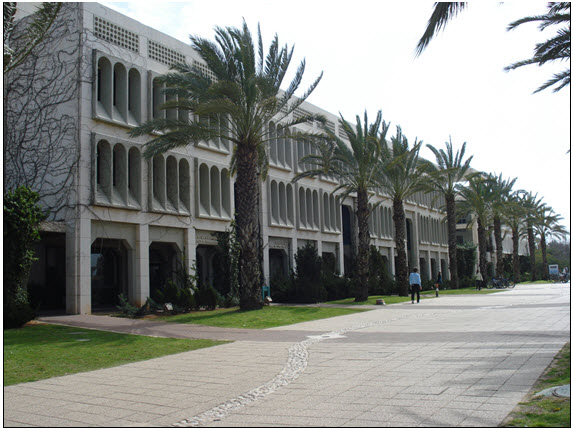Tel Aviv University backed down from its ban on the use of Arabic in its tuition call center on Wednesday, February 17, following a report in Haaretz. An instruction handed down in December banned the use of Arabic, even when both the employee and the caller were Arabic-speaking. “The instructions not to provide call center service in Arabic were mistaken, were not approved by the university administration, and are contrary to the spirit of the institution,” a spokesperson for the university said in a statement issued on Wednesday. The university added that it was “working to rectify the situation immediately.” In early December, call center employees received an email indicating that “Tel Aviv University provides tuition information in the Hebrew language only, and as a result these instructions apply to us as [call center] receptionists providing services.”
The email followed a dispute over the refusal of one of the workers at the call center, Alaa Haj Yahia, to comply with instructions by the call center management that she refrain from speaking Arabic with callers. Haj Yahia left her job at the beginning of January, two months earlier than planned, because of the new rule and what, she said, was the attitude of her supervisors.
Hadash Knesset member Yousef Jabareen (Joint List) also demanded that the university change these instructions. “At a time when the Council of Higher Education has declared a program to broaden access to higher education among the Arabic community, it’s unacceptable that one of the country’s main universities has decided to make life difficult for those who speak Arabic, which is a recognized national language. Such instructions are demeaning and abusive.”
MK Jabareen added that the “initial response by the university was outrageous. Instead of clarifying clearly, without hesitation, that there is no reason to ban conversations in Arabic, the university chose to ‘look into the matter.’ It should have been understood immediately that the ban is inherently wrong and discriminatory. I am pleased that the university has admitted its mistake.”
In a letter to the university, Adalah, the legal center for minority rights, wrote that the university’s call center which deals with tuition fees “provides basic and necessary information for students and potential students, irrespective of whether they are Jewish or Arab, and without discrimination, in particular with regard to their mother language. The ban on speaking Arabic is even more surprising in light of the fact that the call center employs workers from the Arab community.” The letter from Adalah was written on behalf of Rabia Agbariya, a student at Tel Aviv University, who had contacted the call center and had spoken with an Arabic-speaking receptionist who refused to speak Arabic with the caller due to the instructions.



